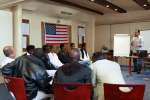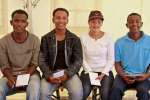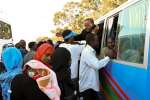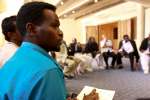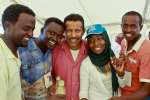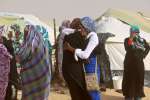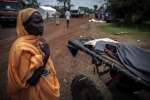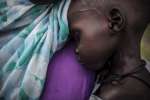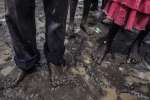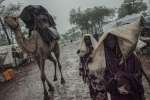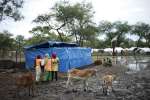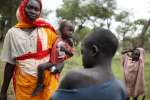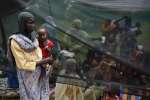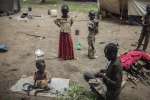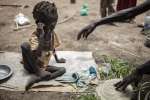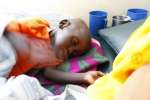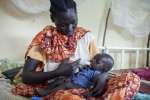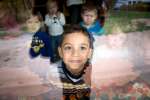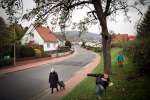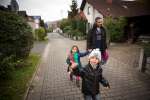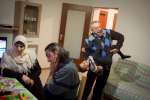A deaf refugee from Bhutan impresses in Canada with her enthusiasm
Telling the Human Story, 29 September 2011
OTTAWA, Canada, September 29 (UNHCR) – Moving half-way across the world to an entirely new country and culture could seem daunting to a deaf teenage refugee from Bhutan.
But Pabi Rizal says it's the best thing that ever happened to her. And she'll tell you in English and American Sign Language – both of which she learned in an astonishing three months after she, her parents and two deaf siblings came to the Canadian capital just over two years ago, when she was 18.
"I believe deaf refugees can do anything hearing people do, except hear," she says through a sign language interpreter in her Language Instruction for Newcomers to Canada classroom at St. Joseph's Adult School in Ottawa. Clearly excited about being interviewed by UNHCR, she's exuberant and outgoing, her face only turning sombre when she recalls refugee friends she left behind in the Beldangi camp in eastern Nepal.
After 17 years in a refugee camp of thatched huts – her parents fled Bhutan soon after she was born – Pabi was enormously impressed by things most Canadians likely take for granted.
"Wow, there is electricity everywhere and all the time," says Pabi, her eyes lighting up at the thought of being able to study at night and use her computer whenever she wants. "Here at school, I keep on being amazed at the flashing fire alarm," she adds.
At first astonished by the high-tech visual learning aids at her new school, Pabi quickly mastered video phoning. She now uses Skype to train other deaf Bhutanese refugees around the world. She is happy to explain how to use the equipment in the classroom, her enthusiasm inspiring visitors just as electricity illuminates Pabi's new world.
Pabi and her family are some of the 5,000 Bhutanese refugees from camps in Nepal coming to Canada under a five-year resettlement programme that began in 2007. More than 50,000 refugees have already left camps in Nepal for eight different countries in one of the world's largest resettlement programmes.
Contrary to public perception, American Sign Language is not related to English, so Pabi had two new skills to learn when she arrived in Canada. But after just three months she did well enough to get a job as a warehouse attendant in a department store in an Ottawa suburb.
She's grateful for the opportunity to study in the morning and work in the afternoon, and has applied for admission to the Belleville School for the Deaf in hopes of becoming a teacher of others with hearing problems.
Pabi clearly sees her future as lying in this hospitable North American country. "I want to stay in Canada," she says. "Canada has given me and my family empowerment, equality and respect."
By Gisèle Nyembwe in Ottawa, Canada





